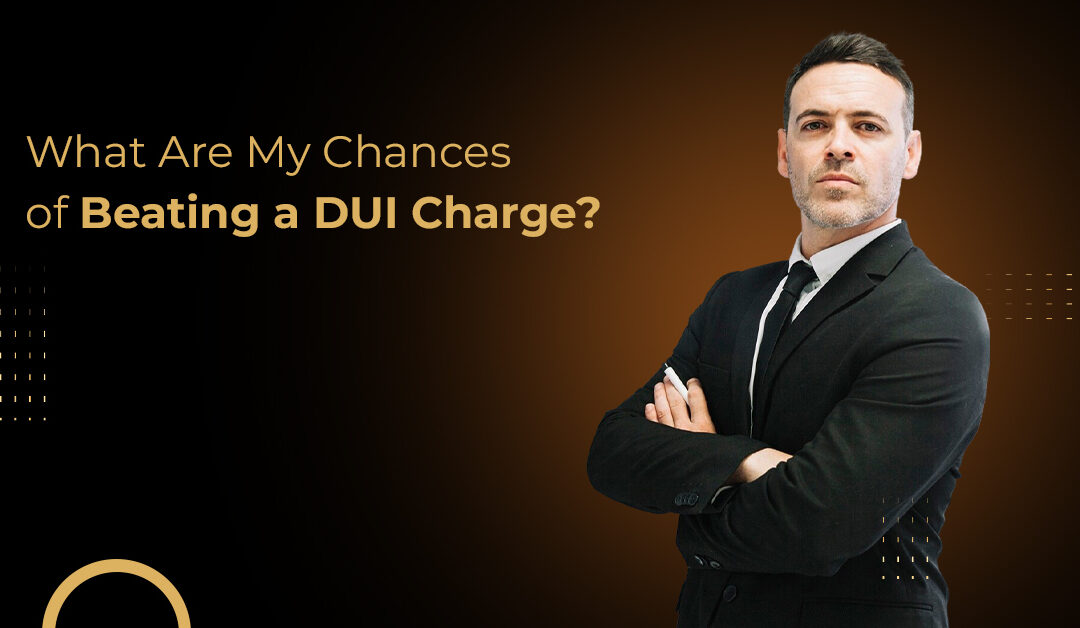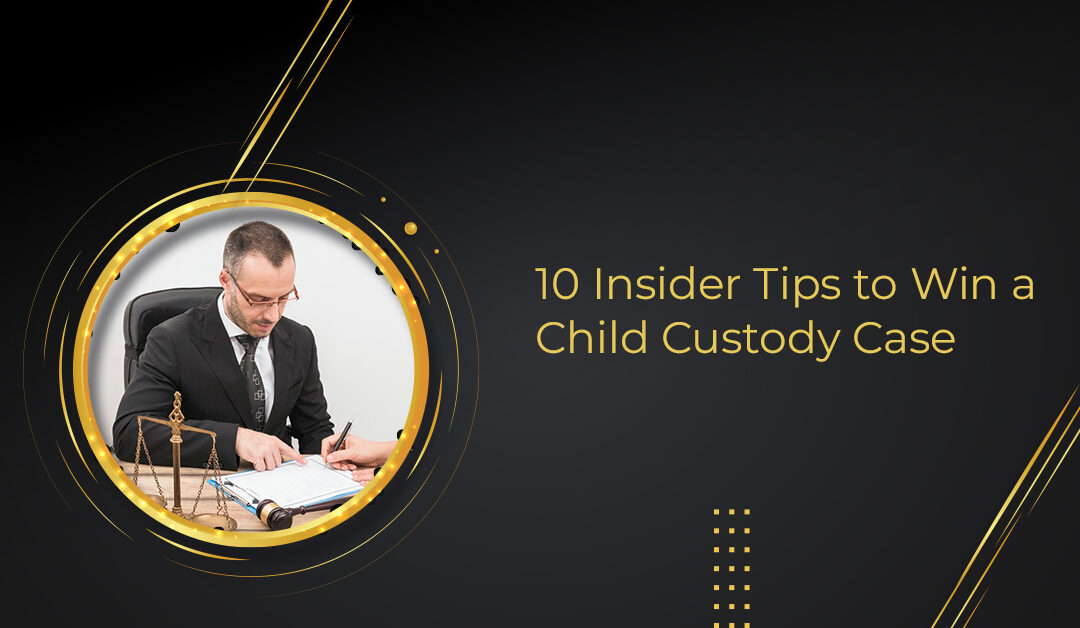
by John Schill | Jul 5, 2025 | Blog
The process of filing for a divorce can be overwhelming, especially with the emotional toll that comes with ending a marriage. Although no one enters a marriage with divorce in mind, sometimes it’s the only option. The legal process itself can be complex, with practical decisions to make, requirements to meet, and forms to sign. In this article, we break down the process of filing for divorce in Arizona so you can know what to expect and prepare accordingly.
How Divorce Is Different in the State of Arizona
Filing for a divorce in Arizona refers to the process of divorce as the dissolution of marriage. However, it differs slightly from some states in terms of requirements. For instance, the Judicial Branch of Arizona requires residents to wait for at least 60 days from the date of their marriage before they can file for a divorce.
The parties pursuing the dissolution of their marriage must be domiciled in the state for at least 90 days before filing. This means that the couple must have treated Arizona as their primary state of residence. One of the ways you can demonstrate that your primary domicile is by registering to vote. If you and your spouse meet these two requirements, either can push to proceed with the marriage dissolution.
What Do You Need to Discuss With Your Spouse Before Divorce Proceedings?
Before filing for a divorce, it helps to discuss pertinent issues with your spouse or partner. Agreeing on the following issues can speed up the process and make the divorce proceedings seamless:
Custody of the Minor Children
Custody is one of the primary concerns for many parents when filing for a divorce. When minor children are involved, the court will have to decide about the custody. Being on good terms with your partner can be helpful. You can discuss the future of your children and decide on the best course of action:
- How you will divide parenting time: Do you want to have rotating schedules, or split the weekends and weekdays?
- How will you make decisions about your children: Will the parent who is currently watching over the child have the right to make all decisions, or will consultations be necessary?
Discussing the issues of custody ensures that both of you are content with the arrangement and that the young children involved will not be subjected to conflict needlessly. If you cannot agree about the custody, then the judge will do it for you.
Child Support
Child support refers to the financial obligations that parents have to their children. Whether you are the parent awarded primary custody or the non-custodial, supporting your child will still be your responsibility. Although there is no set amount of child support you must pay, the law requires it to be a reasonable amount.
Maintenance or Alimony
Alimony means maintaining a certain standard of living for your ex-partner. This provision during a divorce covers the unequal division of assets. It can take different forms other than monetary payments, such as providing your partner with certain goods and/or services in lieu of financial support.
Division of Assets
Another thing you will need to discuss before divorce proceedings is asset division. The court will usually seek to equally divide all the assets that the couple acquired throughout the marriage. Talking about the division of assets with your spouse helps to clarify which of your assets were obtained before getting married, and avoid contentious dissolution.
How to File for a Divorce in Arizona: A Step-by-Step Guide
Whether you have discussed the above with your or not, you can still start the divorce proceedings. Here are the key steps to follow:
Step 1: Obtain and Accomplish the Petition for Dissolution of Marriage
The first step to filing a divorce in Arizona is to obtain a petition for dissolution of marriage. This is the document that the court will repeatedly reference throughout the divorce proceedings. Make sure you provide all the requested details and fill out the form under the supervision of an attorney to avoid making mistakes.
Step 2: Complete Other Relevant Documents
In addition to the petition for dissolution of marriage, you may be required to fill out the preliminary injunction, summons, sensitive datasheet, and other documents.
Step 3: File the Petition for Dissolution of Marriage and Other Documents with the Court
Once you have obtained and filled the necessary documents, head over to the courthouse in your area and look for the clerk of court who will accept your filing. Familiarize yourself with the rules for filing and pay the necessary fee. You will then be given a case number that you will use as a reference for future proceedings.
Step 4: Serve the Petition for Dissolution of Marriage and Other Documents to the Other Party
With the documents completed and filed, you can now serve your spouse the petition to dissolve the marriage. Serving them the paperwork gives them a legal notice of what you intend to do.
You can serve your spouse divorce documents by sending an unrelated party such as a registered process server or a law enforcement officer to deliver the documents. You could also have them sign an Acceptance of Service before serving the documents. You are then required to return the signed documents to the clerk of court and file the proof of service.
Step 5: Wait for the Response of the Other Party
If your spouse lives in Arizona, they will have up to 20 days to file a response to your petition while those living outside will have up to 30 days. In cases where the respondent was made aware of the petition through a publication, they will have up to 60 days from the day of the notice’s initial publication to respond. If the other party does not respond on time, the case can proceed by default if they fail to respond promptly.
Step 6: File a Consent Decree if You Agree to the Dissolution of Their Marriage
Once the two of you agree to the terms of the divorce and indicate as such in their response, the next step is to file consent decrees, detailing the terms of your divorce. The consent decrees are then filed with the court. You may need to make an additional appearance in court to finalize the divorce.
Step 6A: Attend a Default Hearing
If your ex-partner does not respond to the petition, a default hearing will eventually end in your being divorced. You will need to file an application and affidavit of the default divorce and send a copy to your spouse. If they do not respond after 10 days, your divorce will push through.
Step 6B: Go to an Early Resolution Management Conference
The court may order both of you to attend an Early Resolution Management Conference if your ex-spouse does respond and indicate that they do not agree with the terms of marriage dissolution. During the conference, the two will need to compromise and agree to the terms of your divorce.
Step 6C: Take Part in a Trial
In cases where the two of you cannot agree to the terms, the trial may go to court. Since trials can be costly and time-consuming, it is best to discuss all the pertinent issues with your partner before starting the divorce proceedings.
Step 7: The Dissolution of Marriage Is Finalized
Your marriage is dissolved at the end of the divorce, whether you went through a relatively civil divorce or a contentious trial. The court will hand down the decree of dissolution of marriage, marking the finalization of the divorce.
Hire a Reliable Divorce Lawyer
Divorces can be messy, tiring, and costly. However, working with an experienced lawyer increases the chances of getting final terms that favor you. If you want to file for a divorce in Arizona, contact us at the Schill Law Group today. Our attorneys are ready to take your case and guide you through every step of divorce proceedings.

by John Schill | May 13, 2025 | Blog, DUI
When you are arrested for drinking under the influence (DUI) in Arizona, your license will be immediately suspended. A DUI arrest is considered a serious offense and will have immediate consequences even if you have not been convicted of the crime. However, you may get a restricted license, allowing you to drive to work or school. To give you a better understanding of how this works, this article explains what happens to your license after a DUI in Arizona.
Will I Lose My License for A DUI?
Yes, you may lose your license for a DUI charge. If you are arrested for DUI in Arizona, your license will be taken under the following circumstances:
- BAC test results are unavailable
- BAC results of 0.08 or higher
- BAC results are 0.04 or more while driving a commercial vehicle
- A drug is found in your system
Once charged with a DUI, the officer will take your license. They will then issue you an admin per se form, which will serve as your driver’s license for the next 15 days. Under the admin per se law, the state has the authority to suspend your license upon an arrest for a DUI.
The initial suspension of your license from the Motor Vehicle Department (MVD), even before you get to the court. This means that your license will be suspended even if you have not been convicted of a DUI. However, if you end up being convicted of a DUI, then the court may suspend your license.
Is Your License Suspended Immediately After A DUI?
If you are arrested for a DUI in Arizona, your license is not suspended immediately. Instead, you are given a 15-day grace period during which you will still be allowed to drive. However, you are required to request a hearing with the MVD during the 15-day grace period or give up your right to do so. If you do nothing during this period, then the suspension will automatically go into effect.
How Do You Request a Hearing with the MVD?
To stop the automatic suspension of your license, you must request a hearing with the MVD. A written request is needed to request the hearing, which can be submitted via email, mail, or fax. The request will aid in stopping the suspension from going into effect until your court hearing. The three main types of MVD hearings that you may request include
- Administrative Per Se: Hearing of the issues surrounding the charge to make sure that the police had reasonable suspicion that you were impaired.
- Implied Consent: Hearing requested if you refused to provide a breath or blood sample voluntarily after you were stopped.
- Negligent Operator: A Hearing that examines the entire points record.
How Long Is Your License Suspended for A DUI in Arizona?
The period of time your license is suspended for a DUI in Arizona will depend on the type of hearing you get. The MVD hearing involves an Administrative Law Judge who listens to the arresting officer’s testimony and then decides the issue based on the stands of “beyond a reasonable doubt”. The hearing is less formal and there will be no jury, with the burden of the hearing being a preponderance of the evidence, which means the decision is made based on the notion of “more likely than not.”
If the judge upholds the license suspension, your suspension will start within 30 days. In the case of an admin per se hearing, the license will be suspended for 90 days. However, for an implied consent hearing, the suspension will last for 12 months.
For an admin per se suspension, you may still regain some driving privileges after 30 days. This happens if you complete the alcohol screening form from an approved agency. In contrast, you become eligible for restricted driving after 90 days in the case of an implied consent hearing suspension. You will also be required to pay for an ignition interlock device to be installed and maintained on your vehicle.
How a DUI Defense Lawyer Can Help
If you have been arrested or a loved one is facing DUI charges, you need to speak with an experienced DUI defense lawyer as soon as possible. The attorney will guide you through the process, ensuring you get the best possible outcome. At Schill Group, we represent clients throughout Arizona, making it easier for you to navigate the legal landscape. Get in touch with our attorneys today to get the support you need to navigate DUI charges in Arizona.

by John Schill | May 12, 2025 | Alimony, Blog
Going through a divorce can be a stressful experience. The financial difficulties that come with the divorce, especially if you rely on your spouse’s income for support, can be overwhelming. Understanding Arizona alimony laws can help you know what to expect and plan accordingly. Here is what you need to know about Alimony laws in Arizona and how you can qualify for spousal maintenance during and after the divorce.
How Does Alimony Work in Arizona?
Arizona alimony laws define how a spouse supports the other financially during and after a divorce. This is mostly because the spouse requesting financial support lacks the income or property to support their financial needs. The court may also consider the potential for self-sufficiency for the requesting spouse through employment. However, just because you earn less than your spouse, it does not guarantee that you will get alimony. The law has set out rules for who and when a spouse may get spousal maintenance, including the amount of payments to be made and how long they will last.
Alimony, also known as spousal maintenance or spousal support in Arizona, is an award that one spouse pays to the other after a divorce as a form of financial support. The court will usually look at several factors to determine how much support the spouse will be awarded. These may include the contributions of one spouse to the earnings of the other or the ability of each spouse to provide for the future of the children.
The spousal maintenance guidelines in Arizona ensure that settlements are made and that the awards are fairly predictable and consistent. These guidelines apply as long as you or your spouse has filed for a divorce or legal separation after September 24, 2022. Let’s have a look at these requirements to qualify for alimony.
How Do You Qualify for Alimony?
Alimony in Arizona is particularly useful to individuals who rely on their spouse’s income. The divorce courts can require your spouse to pay you alimony, or spousal maintenance, if you establish eligibility. However, spouses capable of living on their own without financial support usually do not need alimony. To qualify for alimony in Arizona, you need to prove the following:
- Your property is insufficient after marital distribution to support yourself.
- You helped increase the earning capacity of your spouse by contributing to the cost of their education, training, or vocational skills.
- You cannot obtain self-sufficient employment for reasons such as being too long out of the job market or the need to care for a young child.
- Your income or career opportunities have decreased significantly to benefit your spouse.
If your divorce case also includes your spouse seeking to charge you for alimony, you also need to demonstrate their lack of need and your inability to pay. The one with more evidence or convincing reasons is more likely to win. No matter which side you are on, our alimony attorneys in Arizona will present the strongest evidence to get the most favorable outcome.
How Much Alimony Can I Expect to Get?
The amount of alimony you can get in Arizona is not fixed. This will usually depend on several factors related to the spouses and the conditions of the case. Once you qualify for alimony or spousal maintenance in Arizona, you will receive payments based on your earning potential and how you lived as a married couple. Other factors that the court considers include:
- Factors similar to those used in deciding if you qualify
- Your marital standard of living
- Your spouse’s ability to afford to pay alimony
- Age, health, earning capacity, or financial resources of you and your spouse
- The marriage’s duration
- Bad faith and criminal conduct for you or your spouse
When faced with such a case, you need an experienced alimony lawyer who can negotiate an agreement on the amount with your spouse. If no agreement is reached, the lawyer will guide you on seeking the spousal maintenance you deserve.
Consult with Arizona Alimony Lawyers
Every divorce case is different, and the approach used in deciding alimony may vary. If you need alimony to maintain the living standards that you were already accustomed to, speak with an experienced alimony attorney. The lawyer will ensure that your needs are well represented and increase the chances for favorable outcomes. If you are looking for reliable advice and representation, get in touch with our lawyers at Schill Law Group.

by John Schill | May 12, 2025 | Blog, DUI
If you have been arrested for a DUI, you are likely wondering about the likelihood of having your charges reduced or your case dropped. If you are a first-time offender, you are probably wondering what are the chances of the case getting dismissed or even having the charges reduced. In this article, we will look at the chances of getting DUI dropped or reduced to reckless driving.
What Are the Odds of Getting DUI Dropped?
The chances of getting DUI dropped in Arizona can vary significantly depending on several factors. Usually, a dismissal of the case can either come from the court or from the office of the district attorney. However, there must be a reason to dismiss. Depending on the nature of your case, some of the reasons you may give to increase the odds of getting DUI dropped include:
- The strength of evidence the arresting officer has against you
- The circumstances surrounding your DUI arrest
- Your blood alcohol content (BAC) at the time of arrest
- Quality of your legal representation
- Your prior criminal record
While there are chances that your DUI can be dropped, the odds are still very low. In most cases, you are more likely to get a reduction of the charges than a complete dismissal. Nonetheless, the odds of getting your DUI charges dropped are still worth fighting for, especially if this is your first offence. For instance, if there were anomalies or errors in your DUI case, then the chances of getting it dropped are higher. It could be an error in the breath test results, lost evidence, or even the initial stop of the vehicle by the police officer being done illegally.
How Often Are DUI Charges Reduced
Your chances of getting DUI reduced to reckless driving are slightly higher than having them completely dropped. In plea bargaining, the prosecution may be open to negotiating the case. This can result in a reduction of the DUI charges or penalty. However, you will need an experienced DUI attorney to negotiate on your behalf to reach a favorable outcome.
Although the exact percentage of DUI charges that get reduced tends to vary greatly, most cases result in some form of reduction or dismissal. Up to 40% of DUI cases are reduced to lesser charges, with a few of them being dismissed entirely. Since most DUI cases tend to be lengthy, the outcomes are also influenced by many factors.
Can I Get My First DUI Dismissed?
If you are a first-time offender, your chances of getting DUI dropped are higher than repeat offenders. However, every DUI case is taken seriously, and the dismissal is never guaranteed. The outcome of your case will mostly depend on the evidence presented against you and the quality of your DUI lawyer. Some of the strategies that may increase the chances of getting DUI dropped in Arizona include:
- Challenging the legality of the traffic stop
- Disputing the reliability of blood test results or the accuracy of the breathalyzer
- Questioning the accuracy of field sobriety tests
- Arguing that your rights were violated during the arrest
- Identifying procedural errors during the arrest or booking
- Presenting evidence of a health condition that could have affected test results
Although the odds of your DUI charges getting dropped are higher for first-time than repeat offenders, you will need to work with an experienced DUI attorney. They will examine all the details of your case and build a strong defense strategy for the best possible outcome.
The District Attorney’s Office will usually elect to dismiss a DUI case in Arizona due to insufficiency of the evidence or in the interests of justice. In other words, they will often not dismiss a case unless they believe that they cannot prove it at trial. For instance, your blood tests may come back from the laboratory and show that it is below 0.08% BAC. Based on the other evidence gathered for your case, the provability of the case, and your prior record, they may elect to dismiss it. In such a situation, the decision is usually made on your first day in court.
An Experienced DUI Attorney Can Help Get Favorable Outcomes
Being charged with a DUI can leave you worried about the outcomes of your case. Although there are chances your charges can be reduced or dropped completely, it is more difficult if you represented yourself. At Schill Law Group, we are committed to finding the best defense for your case. Get in touch with our experienced DUI attorneys who will try their best to beat your DUI charge or at least have it reduced.

by John Schill | Apr 15, 2025 | Child custody
Fighting for your child’s custody can be a daunting experience. Not only is it challenging, but it can also be emotionally draining. While there are millions of parents going through similar situations, every case is unique. In this article, we provide 10 insider tips to help you win a child custody case.
1. Assess Your Situation
The first thing you need to do is to analyze where you are in your child custody battle. Consider whether you or the other parent has filed the custody petition. If either of you has not filed for custody already, then it means that you are not in a custody battle yet. It is crucial to assess your unique situation, especially if mediation is unsuccessful. Make sure that you have tried your best at mediation before involving a court hearing in a custody battle.
2. Establish Areas of Disagreement
The success of your court battle will depend on how well you are prepared. Before the court hearing, pinpoint and understand where the custody disagreement is coming from. This will allow you and your lawyer to come up with the best game plan. It also means understanding why mediation was not successful, such as differences in visitation time amounts, physical location, or accusations such as drug abuse, neglect, or endangerment.
3. Think Like the Judge
You may need to figure out how and why a judge decides custody in a certain manner. Consider the factors that go into this decision, and which ones apply to your unique situation. Some of the factors that may influence the outcomes of the custody battle may include:
- Each parent’s ability to properly raise the child.
- The employment status of both parents.
- The closeness of the relationship of each parent with the child.
- Which parent does the child prefer to live with.
- If moving to another location would affect the child negatively.
- The physical and mental health of both parents.
- If a relationship with both parents is encouraged.
While not every factor will apply to your child custody battle, figuring out which ones apply to yours can help you get into your judge’s head and look at your case from their perspective.
4. Learn to Prove That You Should Have Custody
After gathering all the necessary information, consider how you can prove that you should have custody. As you think of how to win child custody start by proving you can provide wellness for the child. This means showing that the child will have good eating, sleeping, and exercise habits under your care. For instance, you may show that you encourage your child to be involved with activities like sports or music lessons. Similarly, judges tend to support parents who are open to their child having a relationship with the other parent.
5. Be the Primary Caretaker for the Children
The Court usually decides which parent is awarded custody based on multiple factors. However, the decision is made in the best interest of the child. The court may consider how much the parent asking custody is equipped to provide care for the child daily. While this does not mean that you do every single thing for your child alone, being more involved with the child can influence the court to rule in your favor.
6. Don’t Alienate the Other Parent
Parental alienation occurs when one parent isolates the other and turns a child from the other parent. For instance, some parents switch their child’s school to hide the child from the other parent. Alienating the other parent from your child only increases your chances of losing the custody battle in court.
7. Make Sure You Have a Lawyer for The Child Custody Battle
One of the most important custody battle tips is to make sure you have a lawyer. Hiring a family lawyer during your child custody battle helps you prepare for the case and prove that you should have the custody. Since you will be going through a stressful time in your life, you need a lawyer to help you with filling out paperwork and explaining the legalities involved.
8. Avoid Anger
Most parents undergo a lot of pressure and stress when they think of how to win a custody battle. The extreme stress involved with the case can cause anger. However, you should always stay calm and positive if at all you want to win the case. If you reveal your anger and frustration to the other parent during the case, the judge will hear about it in court and this may influence their decision.
9. Be Stable
Thinking about how to win child custody can tempt you to change certain aspects of your life. However, being stable can be helpful to your case. The courts will attempt to cause as little disruption to the children during litigation, ensuring they reach the best decision. However, a person who switches jobs often or moves homes frequently may be considered unstable and unfit for custody.
10. Act in the Best Interest of the Child
During a custody battle, your emotions will be high because the stakes are so high. Avoid acting in your own best interests, but rather in the best interests of the child. Before making any major decisions, consider what is best for the child and how will it impact your case or your children.
Hire a Family Lawyer for Your Child Custody Case
Fighting for your child’s custody can be a difficult time as the battle is both stressful and overwhelming. Although no one wants to go through this experience, coming out successful on the other side will make you much stronger. While the custody battle tips shared in this article give you a good start, you will need a lawyer by your side to be successful. Contact us today at Schill Law Group for a family lawyer that you can trust with your case.






